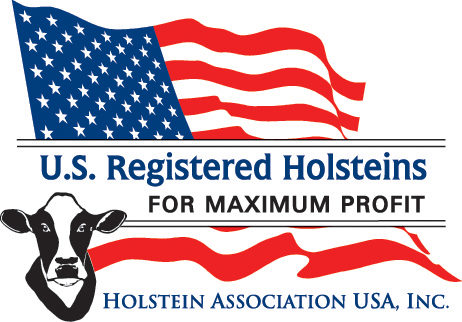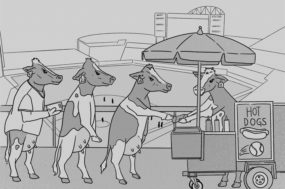This focus on the environment has given animal rights activists another angle to support their cause of taking meat, milk and eggs off everyone’s plates. Traditionally, these activist groups focused their talking points on animal liberation and living a vegan lifestyle to save the animals. In the last few years, they have been trying to ride the coattails of mainstream social justice movements to draw attention to their cause, such as feminism and workers’ rights. Speakers at the 2018 Animal Rights National Conference focused heavily on the “reproductive rights” of animals, and several speakers tied this message with women’s rights issues. They’ve also added environmental messaging to their repertoire.
At the 2019 Animal Rights National Conference, multiple speakers referred to their belief that the planet will go extinct by 2026 if we don’t all go vegan. One speaker at the conference, Sailesh Rao with Climate Healers, told the audience, “You can’t be a conservationist and eat meat.” She added, “By 2026, we’re on track to wipe out almost all wildlife.” Jane Velez-Mitchell of the Jane UnChained news network quoted BBC as saying, “We might have only 18 months to change our ways before doomsday.” Velez-Mitchell went on to say, “Humans could go extinct; it’s a very real possibility.” Several speakers urged animal rights activists and environmental groups to join forces. Make no mistake, much of the current focus we’re seeing on animal agriculture’s environmental impact is activist-driven.
Celebrities have gotten in on the action, too. The Golden Globes went vegan for its pre-show meal due to concerns about the environmental impact of meat. One actor, who claims to be a vegan since the age of three, has been very vocal about the environmental impact of animal agriculture and the care of dairy cows.
Companies have been quick to associate their brand with sustainability. Panera, for example, has committed to making 50% of its menu plant-based. According to Panera’s CEO, this move is “better for you, and better for the world, and better for the environment, and better for animals.” Starbucks hinted at encouraging customers to go for plant-based options to help reach the brand’s sustainability goals.
Media commentary, celebrities and decisions of consumer-facing brands influence public perception of meat and milk production. Sustainability has transitioned from a buzzword to a topic some people are genuinely concerned about. In the International Food Information Council Foundation’s 2019 Food and Health Survey, 54% of respondents said it is at least somewhat important to buy products that are produced in an environmentally sustainable way. And, public perception could impact the way we do business.
At this point, you may be wondering, “So what are we going to do about it?” To start, we should certainly continue to do all we can to decrease the environmental impact of animal agriculture. Continuing to do research to find ways to innovate and implementing science-backed changes on farms and at processing plants are crucial. Consumers expect continuous improvement.
Next is a big task. We have to help others see those improvements. Influencers of public opinion, such as food bloggers, dietitians and the media, need to know that animal ag is responsible for only around 4% of U.S. greenhouse gas emissions and is committed to being increasingly efficient and lowering that even further. We have to help decision makers at restaurant, retail and foodservice brands see what is happening before they make sweeping decisions that impact their supply chain and our ability to market milk and meat. All of these things start with relationships. We need to make connections on shared values and work to build trust.
“Call-out, outrage culture” and “cancel culture,” where we take to our keyboards to express our frustrations or say companies or people are “cancelled” when they do things we disagree with, are very popular forms of online activism today but not necessarily the best way for those of us in agriculture to build relationships. Mocking a company, journalist or consumers for decisions they’ve made won’t help us earn any trust. If we refuse to watch anything with a celebrity we don’t like, and we refuse to do business with a company many consumers enjoy, the gap between farm and fork is only going to widen. Moreover, sometimes our responses end up drawing more attention to an issue of which most of the general public wasn’t aware.
While it may be tempting to go on a social media rant and announce we’re boycotting a brand, proactively working to make connections and build trust will be a much more effective strategy in the long-run and a much better investment of your limited free time. Animal agriculture needs to have a seat at the table and engage in conversations. We need to listen to genuine concerns and provide thoughtful responses.
The Animal Agriculture Alliance, with the mission of bridging the communication gap between farm and fork, is here to help you build bridges. The Alliance has resources to help share the dairy industry’s sustainability story: climate, food and facts website and a sustainability impact report.
Animal rights activists talking about the environmental impact of animal agriculture is not new, but it is reaching new heights in 2020. I expect we’ll see more of the same throughout the year, and activists will continue looking for other avenues to get attention, making it a vital time to add building bridges to your business plan. ![]()

-
Allyson Jones-Brimmer
- Director of Industry Relations
- Animal Agriculture Alliance
- Email Allyson Jones-Brimmer






